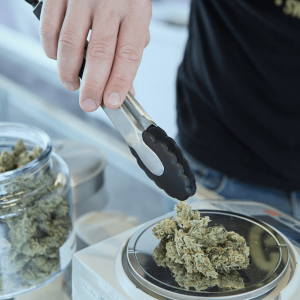Wellbutrin, also known as bupropion, is commonly prescribed to treat depression and seasonal affective disorder. It works by affecting neurotransmitter activity in the brain, which can help improve mood and fight off depressive symptoms.
Meanwhile, marijuana, coming from the cannabis plant, is becoming popular for both medical use, such as treating chronic pain, epilepsy, and glaucoma, and recreational use due to its psychoactive effects.
As Wellbutrin becomes a go-to option for depression and as marijuana use grows with its legalization in many places, it’s important to understand how these two might interact if consumed in tandem.
In this blog, we’ll explore the interaction between Wellbutrin and marijuana, looking into possible effects, benefits, and risks. Let’s begin!
Understanding Wellbutrin
Wellbutrin, also known as bupropion, is an effective antidepressant used to treat major depressive disorder (MDD) and seasonal affective disorder (SAD).
Unlike most antidepressants that focus on serotonin, Wellbutrin targets the neurotransmitters dopamine and norepinephrine to help correct an imbalance in the brain’s chemicals. Its unique approach to affecting brain chemistry as an atypical antidepressant is a key reason for its popularity.
Besides its main uses, doctors often prescribe Wellbutrin for other conditions like ADHD and treating nicotine dependence. Needless to say, it’s an incredibly versatile prescription medication!

Introduction to Marijuana
And now for our favorite type of ‘medication…’
Marijuana refers to the dried flowers and leaves of the cannabis plant, containing over 400 different compounds, among which THC (tetrahydrocannabinol) and CBD (cannabidiol) are the most impactful on the human body and mind.
THC is the compound that produces the “high” associated with marijuana use, while CBD is known for its medical benefits without the psychoactive effects.
The use of marijuana spans two primary categories: medical and recreational. Medically, it’s prescribed for alleviating chronic pain, reducing inflammation, and controlling epileptic seizures, among other conditions. Recreational use, on the other hand, is sought for relaxation, euphoria, and enhanced sensory perception. Cannabis is a widely used recreational drug.
Marijuana’s effects on the brain include altered senses, mood changes, impaired memory, and, in some cases, reduced pain and increased appetite.
Interactions Between Wellbutrin and Marijuana
When discussing the interactions between Wellbutrin and cannabis, it is crucial to start with basic principles of drug interaction. Essentially, drug interactions can either diminish or enhance the effects of the drugs involved. They may also lead to unexpected side effects.
Given that Wellbutrin primarily influences dopamine and norepinephrine in the brain, while marijuana’s THC component acts on the brain’s cannabinoid receptors, their simultaneous consumption could potentially alter the efficacy of Wellbutrin or intensify marijuana’s psychoactive effects.
The ingredients in marijuana, especially THC, could affect how Wellbutrin works by changing levels of neurotransmitters, possibly enhancing or weakening Wellbutrin’s effects. Wellbutrin increases dopamine levels, and THC affects dopamine too, but differently. This means they could work together or against each other in ways that might change a person’s mood, perception, and mental health.
Potential risks and considerations include increased anxiety, changes in mood, or altered effectiveness of Wellbutrin. Users might experience heightened side effects or decreased therapeutic benefits, emphasizing the importance of consulting healthcare providers before mixing these substances.

Mental Health Implications
The use of Wellbutrin for depression and anxiety is widespread, as it tackles the biochemistry of mood disorders by targeting dopamine and norepinephrine. Its effectiveness in improving symptoms of depression and, occasionally, anxiety makes it a valuable tool in mental health treatment.
On the other hand, marijuana’s effects on mental health conditions are varied; it can offer relief from symptoms like chronic pain and epilepsy—conditions that often co-occur with mental health issues—thus indirectly benefiting mental health. However, it can also worsen conditions such as anxiety or psychosis in some individuals due to its psychoactive properties.
Looking into how Wellbutrin and marijuana together affect mental health is complex. For some, marijuana may lessen Wellbutrin’s side effects, leading to a more relaxed mental state. However, for others, this combination might worsen mental health, causing increased anxiety or mood swings, especially in people with a history of these issues.
So, what does this tell us? Well, individual medical advice and careful monitoring are crucial for anyone using both because ultimately, mental health is highly individual.
Physical Health Concerns
When it comes to physical health, both Wellbutrin and marijuana come with their own set of potential side effects that could have implications for users, particularly when used together. Wellbutrin is generally considered safe but may cause side effects such as:
- Headaches
- Weight loss
- Dry mouth
- Nausea
- Insomnia
- High blood pressure
- Withdrawal symptoms
Additionally, it carries a warning for increasing the risk of seizures, which is particularly relevant at higher doses or in individuals with preexisting seizure disorders.
On the flip side, Marijuana’s impact on physical health varies widely among individuals and can include:
- Red eyes
- Dry mouth
- Slow reaction times
- Increased heart rate
- Marijuana withdrawal
It’s important to note that chronic use has been associated with risks such as respiratory issues from smoking, potential changes in brain development when used heavily by adolescents, and cannabinoid hyperemesis syndrome, a condition leading to repeated and severe bouts of vomiting.
Combining Wellbutrin with marijuana could potentially compound these physical risks. For instance, the increased risk of seizures from Wellbutrin might be worsened by the psychoactive effects of THC, especially in susceptible individuals. Additionally, the stimulating effects of Wellbutrin combined with marijuana’s ability to slow reaction time could lead to an unpredictable impact on physical coordination and cognitive function.
Benefits of Combining Wellbutrin with Marijuana
Emerging research and personal stories suggest combining Wellbutrin with marijuana might have benefits, especially for some medical and psychological conditions. People who haven’t found much relief from usual treatments for depression, anxiety, and chronic pain have noticed better results when they add marijuana to their Wellbutrin treatment. This mix seems to boost Wellbutrin’s mood stabilization effects and uses marijuana’s ability to tackle immediate issues like pain and stress.
Moreover, mixing these substances may help conditions like severe depression, anxiety, and chronic pain, especially when standard treatments haven’t worked. For example, marijuana’s pain relief and relaxation might enhance Wellbutrin’s mental health benefits, offering a comprehensive treatment approach.
However, caution is advised since research is still underway, and it’s best to consult a doctor before altering any treatment plans.

Risks and Warnings
Research and FDA warnings show that mixing Wellbutrin and marijuana requires caution. Studies suggest that using them together could lead to more side effects and possibly make each less effective. Although direct FDA warnings on this combination are not extensive, the FDA does warn about using Wellbutrin with substances that could increase seizure risk or affect the same neurotransmitter systems as Wellbutrin does.
Studies show that using Wellbutrin and marijuana at the same time can cause unexpected mental and physical health problems. These can include more anxiety, confusion, and a higher chance of having seizures. This highlights how complex and unpredictable mixing different drugs can be.
It’s really important to keep an eye on things and get medical advice if you’re taking Wellbutrin, thinking about using marijuana, or already using both. Talking to a healthcare professional can help keep track of any side effects and adjust your treatment plan to keep you healthy and safe. Everyone reacts differently to these substances—what helps one person might harm another, so monitoring is key.
Conclusion
Mixing Wellbutrin and marijuana definitely falls into a complex zone because everyone reacts differently. Our research emphasizes how important it is to dig into both the potential upsides and the downsides of using Wellbutrin with marijuana.
For some, the combination could be a game-changer, especially for mental health and easing pain, but for others, it might bring about more side effects or make their treatments less effective. This unpredictability is exactly why chatting with a doctor and getting advice tailored just for you is super important when considering mixing these substances.
The bottom line? Always lean on the side of caution and talk with your healthcare provider before tweaking your treatment plan. This approach helps balance the benefits against the risks, with your health front and center. And as more research comes out, we’ll get a clearer picture of how to best use combinations like Wellbutrin and marijuana to boost patient care and outcomes.
Frequently Asked Questions
1. What can you not do while taking Wellbutrin?
When taking Wellbutrin, it’s important to avoid consuming alcohol as it can increase the risk of seizures and exacerbate side effects like dizziness and depression. You should also avoid activities that require a lot of concentration or physical coordination until you know how Wellbutrin affects you, due to potential side effects like dizziness or blurred vision.
2. Does Wellbutrin react with CBD?
Current research on the interaction between Wellbutrin and CBD is limited, but both substances can affect the brain’s neurotransmitter systems. CBD might alter the effectiveness of Wellbutrin or increase the risk of side effects. Always consult with a healthcare professional before combining these substances.
3. What is the best drug to pair with Wellbutrin?
The best drug to pair with Wellbutrin varies depending on the individual’s health profile and the specific conditions being treated. Wellbutrin is often used in combination with other antidepressants to treat major depressive disorder when a single antidepressant is not effective. Pairing decisions should always be made by a healthcare provider based on a thorough evaluation.
4. How much caffeine can I have with Wellbutrin?
While there is no specific limit on caffeine intake with Wellbutrin, caffeine can increase the side effects of Wellbutrin, such as shaking, loss of appetite, and insomnia. It’s advisable to monitor the intake of caffeine and consult with your doctor, especially if you consume large amounts of caffeine or if you notice increased side effects.

 Rewards
Rewards





